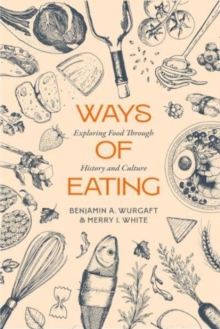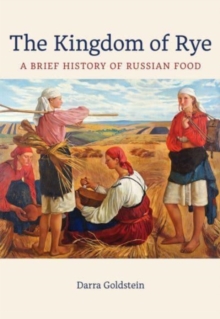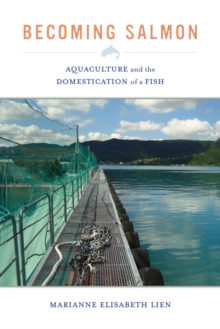
Cumin, Camels, and Caravans : A Spice Odyssey Hardback
by Gary Paul Nabhan
Part of the California Studies in Food and Culture series
Hardback
Description
Gary Paul Nabhan takes the reader on a vivid and far-ranging journey across time and space in this fascinating look at the relationship between the spice trade and culinary imperialism.
Drawing on his own family's history as spice traders, as well as travel narratives, historical accounts, and his expertise as an ethnobotanist, Nabhan describes the critical roles that Semitic peoples and desert floras had in setting the stage for globalized spice trade.
Traveling along four prominent trade routes - the Silk Road, the Frankincense Trail, the Spice Route, and the Camino Real (for chiles and chocolate) - Nabhan follows the caravans of itinerant spice merchants from the frankincense-gathering grounds and ancient harbors of the Arabian Peninsula to the port of Zayton on the China Sea to Santa Fe in the southwest United States.
His stories, recipes, and linguistic analyses of cultural diffusion routes reveal the extent to which aromatics such as cumin, cinnamon, saffron, and peppers became adopted worldwide as signature ingredients of diverse cuisines. Cumin, Camels, and Caravans demonstrates that two particular desert cultures often depicted in constant conflict - Arabs and Jews - have spent much of their history collaborating in the spice trade and suggests how a more virtuous multicultural globalized society may be achieved in the future.
Information
-
Available to Order - This title is available to order, with delivery expected within 2 weeks
- Format:Hardback
- Pages:332 pages, 12 color illustrations, 10 b-w photographs, 4 maps
- Publisher:University of California Press
- Publication Date:07/04/2014
- Category:
- ISBN:9780520267206
Other Formats
- Paperback / softback from £18.15
Information
-
Available to Order - This title is available to order, with delivery expected within 2 weeks
- Format:Hardback
- Pages:332 pages, 12 color illustrations, 10 b-w photographs, 4 maps
- Publisher:University of California Press
- Publication Date:07/04/2014
- Category:
- ISBN:9780520267206










